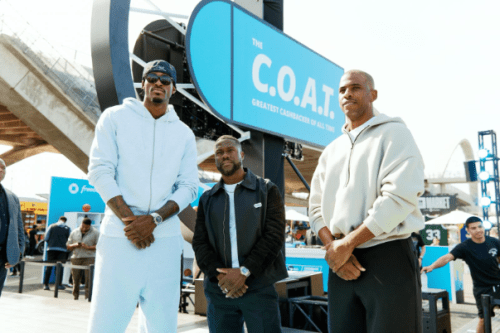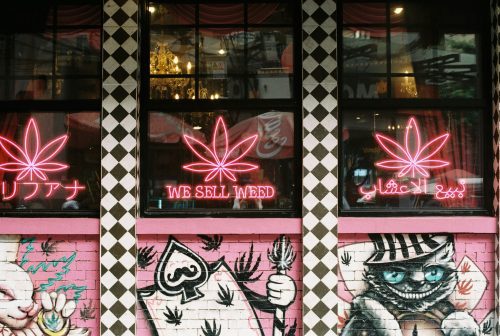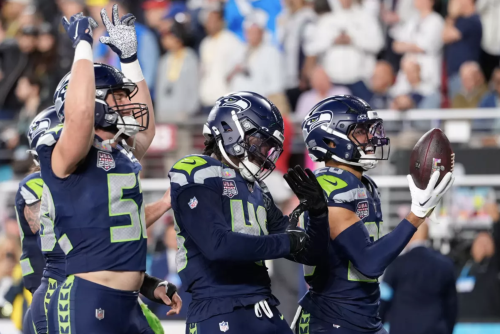This week, we cover a letter sent to the Small Business Administration by the ABA, Nevada’s prospective measure pardoning past cannabis convictions, the evolution of the NBA’s cannabis policies, and the Federal Reserve’s acknowledgment of legalization’s economic impact.
We will also continue our coverage of legislative updates resulting from the ongoing Black Lives Matter protests.
Federal Reserve Acknowledges Potential Economic Impact Of Cannabis

A St. Louis Federal Reserve Bank district recently published a report on the economic impact of state-wide cannabis legalization. As well as economic benefits, the report detailed the likelihood of cannabis serving as a substitute for alcohol.
According to the report, the economic impact of cannabis legalization could outweigh “one’s moral standing on use.” As long as a reasonable tax rate is set, the report says, the financial benefits of legalization are relatively indisputable.
The report also went on to note the ongoing and problematic banking issues facing the cannabis industry. As it stands, THC-heavy cannabis is federally illegal. As a result, cannabis companies have difficulties utilizing federal banking institutions.
The report also stated that consumers are more likely to spend a greater portion of their income on cannabis than they are on other taxable goods, such as alcohol or tobacco.
This report is one move of many on behalf of the St. Louis Federal Reserve Bank. Earlier this year, it gave notice that financial institutions were to discontinue the practice of treating hemp businesses as “suspicious.”
Nevada’s Governor Pushes Measure To Pardon Past Cannabis Convictions
On Thursday, Gov. Sisolak of Nevada introduced a new measure to state lawmakers. The measure would grant pardons to thousands of Nevada citizens with prior low-level cannabis convictions.
“If approved,” Sisolak said, “this resolution will clear the slate for thousands of people who bear the stigma of a conviction for actions that have now been decriminalized.”
Prior to this measure, Nevada lawmakers passed legislation that allowed citizens to petition the court for expungements. If this measure passes, expungements for low-level cannabis convictions would become automatic.
“The people of Nevada have decided that possession of small amounts of marijuana is not a crime,” Sisolak said.
Pardons stemming from this measure would not void convictions. However, they will restore the right to vote, possess firearms, or participate in jury duty. Hearings for the measure will begin on Wednesday, June 17.
If the measure passes, Nevada will join Washington and Illinois, states that have issued similar pardons since legalizing cannabis.
NBA Players Union Executive Joins Cresco Labs, NBA Suspends Cannabis Testing

Michele Roberts, executive director of the National Basketball Players Association, is reportedly joining the board of Cresco Labs. Roberts will become the first female board member of Cresco Labs, one of the largest cannabis companies in the country.
Roberts says she aims to advance Cresco’s “distinctive brands of high-quality products and services.” In particular, she hopes to focus on cannabis’ potential as an alternative medication for those who don’t benefit from existing treatments.
During her time with the NBA Players Association, Roberts has focused on revamping the league’s cannabis policies. She has previously praised cannabis’ “efficacy and value” for players, specifically related to pain management.
Now, it would appear that these attempts are paying dividends.
The Athletic is reporting that the NBA and players union have agreed to suspend cannabis testing for its players. The move is temporary, expected to last at least until the current season comes to an end.
It remains unclear whether the move will be a lasting one, but a collective bargaining agreement is currently ongoing.
American Bar Association Pushes To Extend Federal Coronavirus Relief To Cannabis Lawyers

The ABA sent a letter to officials at the Small business Administration, asking that they end current policies preventing law firms working with cannabis companies from receiving federal coronavirus relief.
Since COVID-19 took hold of the US, there has been an ongoing battle between the SBA and the cannabis industry.
Cannabis companies have been declared “essential businesses” in several states. When considering the amount of tax revenue these businesses generate for their respective states, this decision is easily defendable.
However, despite the positive financial impact of cannabis companies, the SBA has turned a blind eye.
Not only does the SBA refuse to administer financial relief to cannabis companies, it has taken it a step further—refusing to grant funds to entities that work directly (and, oftentimes, indirectly) with cannabis companies.
As a result, law firms that represent members of the cannabis industry are incapable of receiving federal coronavirus relief.
“Lawyers should […] not be penalized for providing legal services to cannabis-related businesses that comply with state laws,” the ABA stated in their letter. The ABA states in their letter that 78% of its members operate in states with some form of legal cannabis.
This letter from the ABA is one of several attempts by multiple entities to reign in the SBA.
As it currently stands, the SBA’s policies exclude hundreds of companies in states with legal cannabis from receiving federal relief during the ongoing coronavirus pandemic.
BLM Protest Updates

The United States is currently experiencing a surge of activism and protesting resulting from the murder of George Floyd by Minnesota police officers.
Protesters are taking to the streets across the country to systemic reform against police violence.
What follows is a list of actions taken as a response to the ongoing Black Lives Matter movement.
- Los Angeles District Attorney Jackie Lacey orders police to discontinue use of “carotid restraints.”
- Denver police ordered all tactical units to activate body cameras when executing tactical operations.
- New Jersey Governor Phil Murphy announced a series of new police reform initiatives.
- Governor Andrew Cuomo of New York announced a plan requiring police agencies to work with community leaders to adopt new policies.
- New York repealed the SHIELD Act, a piece of legislation that protected police from civil litigation and disciplinary actions.
- Seattle’s Mayor Jenny Durkan passed an emergency order requiring the use of body cameras by police at protests.
- Austin’s City Council unanimously voted to limit the use of force and cut the Austin Police Department’s budget.
- Houston’s Mayor Sylvester Turner signed an executive order banning chokeholds by police.
- Authorities labeled the shooting of Rayshard Brooks in Atlanta as a homicide. The ATLPD fired the officer involved in the shooting, and the chief of police resigned.
- Louisville initiates “Breonna’s Law,” banning the use of “no-knock” warrants.







